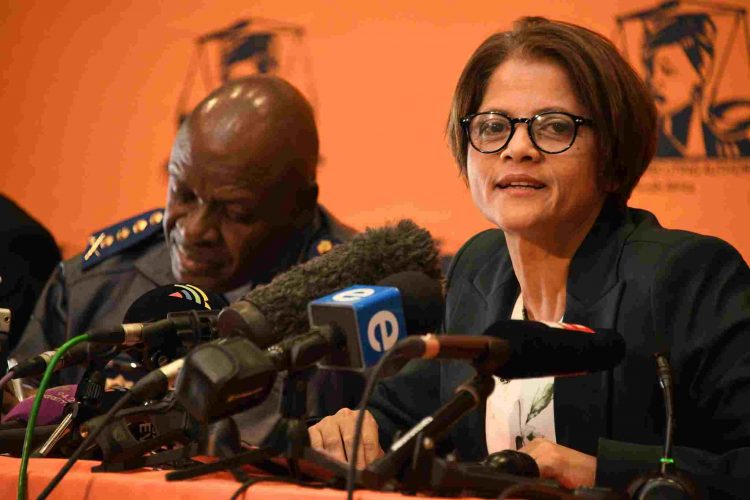The National Prosecuting Authority (NPA) has clarified that it did not receive any funds from Steinhoff to investigate alleged fraud and corruption by the company’s former senior executives.
In a statement issued on Wednesday, the NPA was equivocal, saying funding of the forensic investigation falls squarely within the domain of the SAPS.
“It is accepted practice locally and internationally for complainant companies to commission these kinds of forensic exercises and the NPA can use the findings appropriately for the purposes of preparing any possible prosecutions,” reads the statement.
The investigation emanates from allegations that senior Steinhoff Group officials, and external parties in various international jurisdictions, who were presented as being independent from Steinhoff, colluded to create and process fictitious transactions within the Steinhoff Group’s financial records in order to inflate income.
The alleged fraud amounts to R116.97 million (€6.5 million). On this basis, Steinhoff is regarded as the complainant in the matter.
The NPA in the statement said after the sudden resignation, during December 2017, of Steinhoff’s then Chief Executive Officer, Steinhoff appointed PricewaterhouseCoopers (PwC) to investigate the full extent of the suspected accounting irregularities and/or misrepresentations with reference to the financial statements of the company.
“It took PwC almost two years to finalise the report, whereafter Steinhoff granted the DPCI and the NPA access to the PwC report. It was abundantly clear that the PwC report is an accounting driven report and not a report that primarily focuses on criminality and the criminal court process,” NPA spokesperson Sipho Ngwema said in the statement.
However, he said, PwC also released a separate forensic report which dealt with one fictitious transaction in connection with one leg of the investigations.
The transaction showed that the company’s operating income for the period ended 30 September 2016 was overstated by R376 649 872, by recording a fictitious income for the financial year 2016.
“This, unfortunately, represented a minute portion of all the fictitious transactions that were recorded in the financial statements of Steinhoff,” said Mgwema, adding that the prosecution team supported the appointment by DPCI of PwC to compile a proper report.
This, he said, was because PWC accumulated significant knowledge of the Steinhoff matter over the two years as they were directly contracted by Steinhoff to investigate the irregularities.
“Although the format of their report then did not primarily focus on criminality and the criminal court processes, they compiled a comprehensive forensic audit report dealing extensively with the accounting irregularities which allegedly took place over a long period of time, to wit 2009 to 2017,” he said.
The audit firm, he added, was in an ideal position to produce a forensic audit report for the purpose of criminal investigation and prosecution within a reasonable time span, notwithstanding what might be perceived as a conflict.
He said the various disadvantages were also considered, should PwC not be appointed as auditors for the forensic investigation of this matter.
Among these was that forensic investigations of this complex matter would, for all practical purposes, have to start afresh by the new forensic firm.
“It would take years for the new forensic firm to obtain all relevant documents and to familiarise themselves with the facts,” he said.
Beyond this, he said colossal number of documents would, among other things, be the subject of the new forensic investigation. All those documents were, however, already in possession and under the control of PwC.
“The investigation proved to be very intricate and costly, spanning across borders into various international jurisdictions,” he said.
With the view to properly managing the perceived conflict of interest in the appointment of PwC as forensic auditors in the investigation of this matter, the PwC has signed a certificate in terms of section 4 of the Protection of Information Act.
Ngwema said this was to provide protection against any unlawful disclosures of any confidential information/documentation during the forensic investigation.
Beyond this, all the implicated persons have been removed from Steinhoff structures.
PwC’s findings, he said, will be supported by independent objective evidence such as bank statements, journals, ledgers, data basis, emails, memos and contractual agreements.
“PwC made an undertaking, and also taking into consideration the consequences which would arise from a breach to the section 4 (POPIA) certificate that no evidence obtained during the criminal investigation will be divulged to Steinhoff, even for the purposes of civil litigation,” he said.
He emphasised that it was important to note that it is neither irregular nor uncommon for a complainant to direct a forensic investigation into the company’s financial affairs and, the same forensic report is later used with success during the criminal trial.
“This issue is provided for in guidelines developed by the SCCU and the DPCI Commercial Crime, signed by the then heads of the respective units during 2013,” reads the statement.
He emphasised that that the funding of the forensic investigations are within the domain of the SAPS.
“Their decision to accept the offer by Steinhoff to pay for the forensic investigation of the matter was based on, amongst others, the fact that the entity is in fact the complainant in the matter, although it is regarded as a suspect in the media space,” he said.






